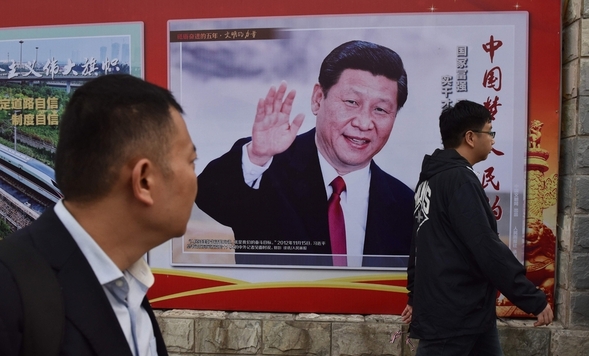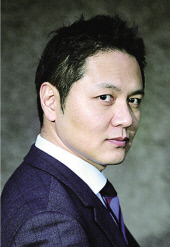 |
|
Chinese President Xi Jinping bows after giving the introductory speech to open the 19th Communist Party National Congress at the People’s Hall on Oct. 18 in Beijing. (EPA/Yonhap news)
|
Journalists in the country are asked to provide interviews, promote the overseas image of China
“Mr. Kim, we’re going to need you to be our star today. It’s an invitational event for foreign correspondents, and apart from a few from Taiwan, there are just two reporters who are ‘actually foreign.’” The Chinese reporter kept smiling awkwardly, as though embarrassed, at the Press Center event a few days ahead of the opening of the Chinese Community Party’s 19th National Congress. I looked around and saw what seemed to be well over a dozen journalists. But there were no foreign journalists attending the event – most were Chinese reporters who had come to cover the foreign reporters. My brain began to spin. “What should I do?” I thought. It had become a frequent occurrence since I arrived in China two years ago. Whenever I went to cover a so-called event, I was routinely grabbed by reporters from local media and “covered” myself. Their questions were always the same: “What did you come here to cover?” and “What is your impression of the event?” But it is awkward. One time, I went to the site of a local development project, and the reporters pounced on me as soon as I got off the bus. I respectfully told them there it was my first stop of the day and I had no reply to give them, but inside I was seething. “I came here to cover the story, not to be the story,” I thought. Some of the other foreign reporters say they willingly go along with it – “We’re all in the same industry and we need to help each other out” – but it’s hard for a number of reasons. The “foreign press response” is a common enough news story in South Korea too, but in China there is all too much of an emphasis on foreign press reports and foreign journalists. In state-run media reports of major international events like last year’s G20 summit or this year’s Belt and Road Summit, or of domestic political events like the National People's Congress and Chinese People’s Political Consultative Conference held every March or the recent National Congress, the situation at the Press Center and reports about the “foreign press’s focused interest” are treated as if they were of top importance. They never fail to interview foreign journalists either. Why should this be? The Chinese explained to me that it was simply a matter of caring a lot about other people’s perspectives. One job seeker in their twenties said it was just like “having an interview and asking the interviewer, ‘What’s your impression of me?‘” A government official noted that China had “undergone rapid economic growth and social change” and was “very interested in foreign perspectives on its situation.” Some also suggested it may be because of restrictions on news investigation and reporting freedoms. One Chinese journalist laughed and explained that they were “doing it because there’s not a lot else they can do.” It sounded like the restrictions made it impossible for them to say anything potentially sensitive beyond rote position statements in their coverage of different events. There was some skepticism over whether the foreign press interviews would actually be fairly reported. A journalist with one overseas Chinese news outlet explained that “company regulations prevent us from doing interviews with the Chinese media, and the government-run media in particular.” “Whatever you say, they’re just going to report what suits them, and [the company] wants to ensure the necessary legitimacy,” the journalist explained. “It doesn’t really mean anything.”
 |
|
Kim Oi-hyun, Beijing correspondent
|







